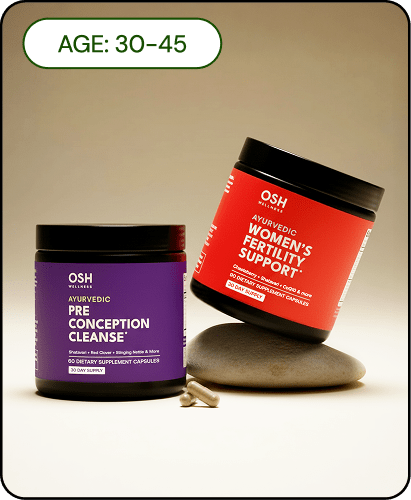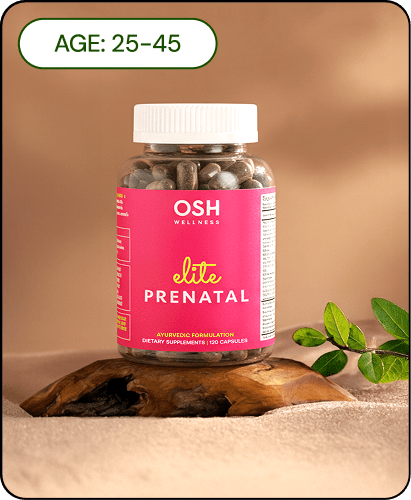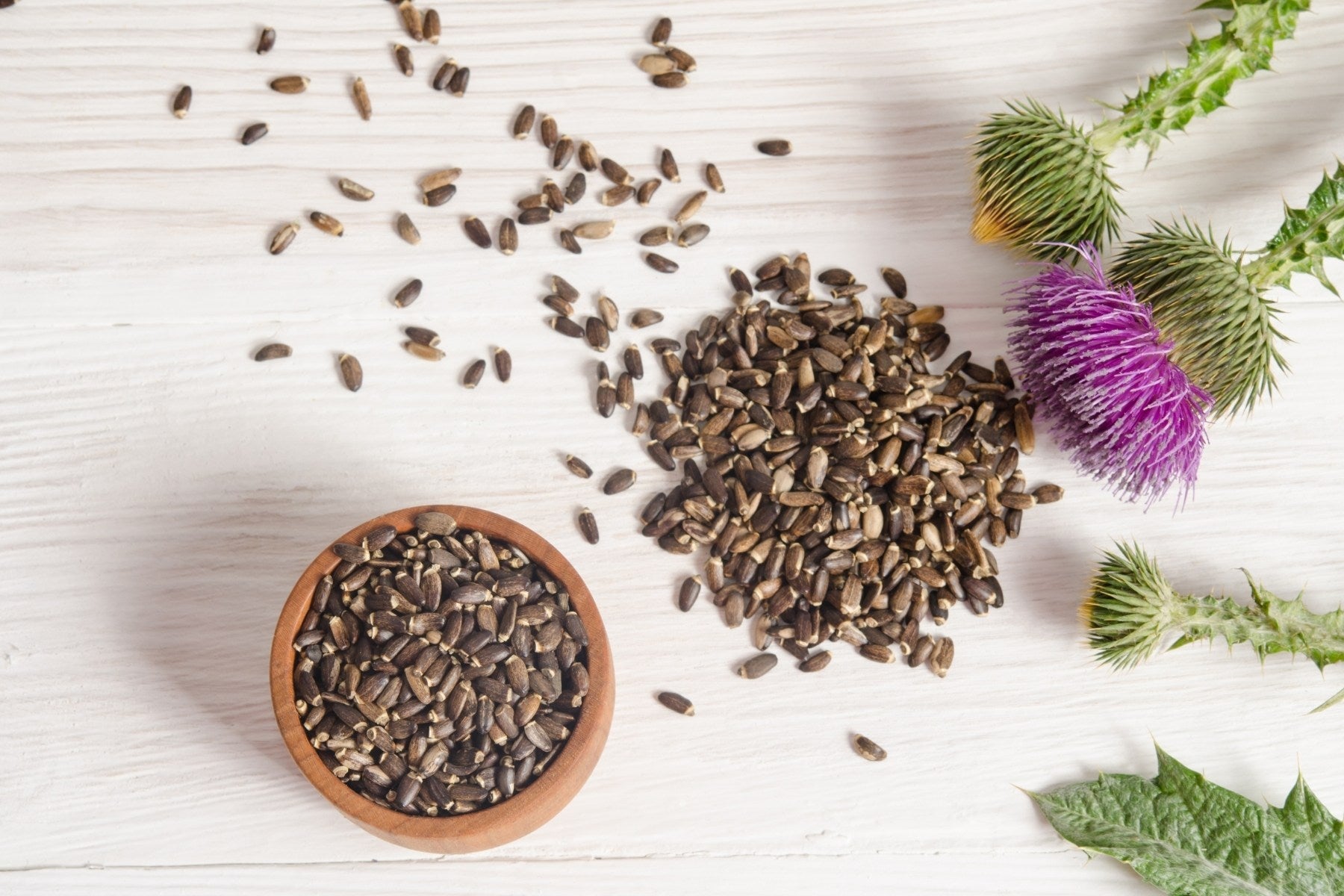Table of contents
There are a multitude of fertility treatments available for couples who have difficulty conceiving. IVF, or in vitro fertilization, is one such treatment. IVF is a necessary choice for some couples. However, it usually isn’t right for everyone, especially those who haven’t tried other options first.
If you are facing infertility, just starting your conception journey, or contemplating IVF, you may want to consider possible alternatives before trying in vitro fertilization. While it is true that IVF may be the only option for a successful pregnancy for some partners, it is always a good idea to educate yourself about other fertility boosting methods first.
What is IVF?
IVF stands for in vitro fertilization. What is important to know is that this fertility treatment is invasive and involves drugs or medications. During IVF, the patient is first given fertility drugs used to stimulate the body to ripen or ready multiple eggs.
Once the eggs are developed, they must be retrieved from the ovaries. A small needle is used to extract them. They are then fertilized in a lab and allowed to grow for three to five days before one or more are returned to the uterus. With any luck, they will continue to grow and develop, and the woman will be confirmed pregnant.
IVF has become so popular because it is effective against nearly any fertility issue where other treatments, like intrauterine insemination (IUI), are not.
Who Is a Candidate for IVF?
Because IVF is a successful fertility treatment for such a broad range of infertility issues, a better question may be who is not a candidate. IVF will not work if the uterus is incapable of implantation and/or supporting a pregnancy to term. Additionally, IVF cannot make eggs for patients; the woman must have eggs available.
The following infertility issues may be helped by IVF:
- Endometriosis
- Ovulation problems
- Pelvic adhesions
- Damaged or blocked fallopian tubes
- Poor semen quality
Why IVF May Not Be Right For You
While IVF seems like a magic cure-all, it does have its risks and disadvantages. IVF is invasive and uses drugs to help mature the woman’s eggs. It can be a long and uncomfortable process, even painful at times. IVF can be very costly and insurance coverage is usually inadequate.
It is true that IVF is often successful, and that there are some infertility conditions that require IVF for pregnancy to take place.
However, there are alternatives available for most couples. This is especially true if you aren’t suffering from prolonged or unexplained fertility. Some partners may not want to pursue IVF for other personal reasons, while others may not be candidates.
If you have only just begun trying and have not had success, it is important to take a holistic approach to your fertility. Take the time to return your body to balance to try and achieve pregnancy before considering costly, painful, and invasive measures.

Are There Alternatives to IVF?
Natural fertility approaches, like Ayurveda, consider all aspects of reproduction. It takes into account the needs of both partners and strives to improve their physical, mental, and reproductive health. Learning how to optimize your body for conception, not only on a physical level but also a mental and spiritual level, can boost your chances of becoming pregnant.
Why Choose a Natural Approach?
Natural fertility methods are not usually invasive, and are typically less stressful and traumatic on your body. Much of IVF occurs in a clinic and can feel very cold and medical. Natural fertility methods can be a more pleasant way to pursue conception and help to keep some of the joy in the process.
Ayurveda and other holistic methods focus on the whole person, rather than just the issue of fertility. They try to find and address the root cause of the problem, often bringing the entire body into balance. These methods consider the total health of both partners: physical, mental, and hormonal. This can greatly aid in having a healthy pregnancy and ultimately a healthy child.
Trying to conceive using natural fertility methods can help reduce any stress you may experience. Ayurveda places great emphasis on understanding the ways in which stress can affect your body and your life. By taking steps to reduce stress, you may have a greater chance at conceiving as well as being both happier and healthier.
Features of An Ayurvedic Approach
Ayurveda works to balance the doshas. Think of it as a rebooting of your entire system. The three doshas are:
- Vata: air, space, wind. Responsible for nerve impulses and movements.
- Pitta: fire, water. Responsible for digestion, metabolism, and body temperature.
- Kapha: water, earth. Responsible for lubrication, tissue development, and maintenance.
Ayurveda strives to balance the doshas through clean eating, cleanses, supplements, movement, massage, and mindfulness. Balancing the inner and outer creates a harmony that not only leads to a happier and healthier life but also a great foundation for conception.
Ayurveda believes that the conditions must be right in order for conception to occur. This doesn’t only concern the outside environment, but also the inside, such as the person's physical health and mental state. One of the most important factors in achieving a favorable environment is diet.

Nutrition and Fertility
Ayurveda believes you are what you eat and digest. Furthermore, the reproductive tissues are the last to receive nutrients and are the most complete and refined out of your body's organs and tissues. Therefore, you want to take care to nourish them well. But modern diets and lifestyles may hinder fertility.
Poor food choices, using contraceptive pills long term, and unhealthy habits like smoking can unbalance the body’s hormone levels. As a result, fertility may be affected. Both an unhealthy diet and digestive issues can impact your ability to get pregnant.
It is important to optimize your diet and lifestyle for fertility. It is recommended to eat a clean diet of whole foods. Including a variety of foods in your diet helps to ensure that you receive many different nutrients, vitamins, and minerals.
An Ayurvedic practitioner can work with a couple in order to determine the best foods to balance their doshas and come up with a fertility boosting meal plan. In general, whole foods are best. These foods have also been known to promote fertility:
- Ghee
- Milk
- Nuts
- Sesame seeds
- Dates
- Pumpkin seeds
- Avocados
- Plant proteins
- Whole grains
You should try to steer clear of processed and packaged foods. Most of these foods contain added salts and sugars, which are not good for your health.
Fertility Supplements
In addition to clean eating, fertility supplements are a powerful part of an Ayurvedic infertility treatment. Supplements can have a variety of benefits, including promoting harmony amongst your doshas, regulating your hormones, and reducing stress. Valuable supplements include:
Ashwagandha: Ashwagandha is an adaptogenic herb, meaning that it helps the body fight the negative effects of stress. It can help promote calmness, improve sleep, and boost your mood.
Shatavari: Shatavari is an amazing fertility tonic for women. It helps to nourish and strengthen reproductive organs, specifically the uterus. It also has hormone-balancing properties that can regulate your hormones and promote ovulation. Additionally, it helps to negate the effects of stress and can be effective against stress-induced infertility.
Spices: Other spices that can help regulate your digestive system and reproductive system, as well as balance your mood and reduce stress, are turmeric, saffron, cumin, black cumin, musali, and kapikacchu.
Drinking warm herbal teas and tonics, infused with some of the above-mentioned herbs, is a beneficial part of a fertility routine. Not only is this practice good for your physical health, but it is also soothing and restorative.
Movement, Mindfulness, and Massage
In addition to practicing healthy diet choices and adding supplements, movement, mindfulness, and massage are recommended.
Movement should be added to your daily routine. It can be as simple as going for a walk or practicing yoga, or more vigorous exercise. These things can help oxygenate your blood and get your systems flowing. They can also be a way to cope with anxiety and stress, and are effective in improving mood.
Mindfulness or meditation should also be considered. Practicing meditation can help align your inner self and help you return to a balanced state. This stillness and reflection is an effective tool against managing stress, lowering your blood pressure, and giving yourself space to breathe. Some find it helpful to focus on a fertility-positive mantra while meditating.
A self-oil massage is a wonderful way to start your morning. Try using warm oil, such as coconut or sesame, and including dry brushing if your dosha calls for it. Fertility massage is relaxing, it helps to stimulate blood flow, and can reduce inflammation. All of these benefits may enhance your fertility.
Taking Natural Steps to Fertility
Natural foods, herbs, and remedies tend to complement your body instead of working against it or aggravating it. Taking steps to promote your health will not only lead to a better quality of life, but also a better environment for conception.
Ayurveda believes that for pregnancy to occur, the preparation of both the female and male is very important. Lifestyle changes will need to be made for at least three months before the partners can see a change in their health. If you are just getting started on your pregnancy journey, or are wondering about natural infertility treatments, you may want to give these methods a try.








